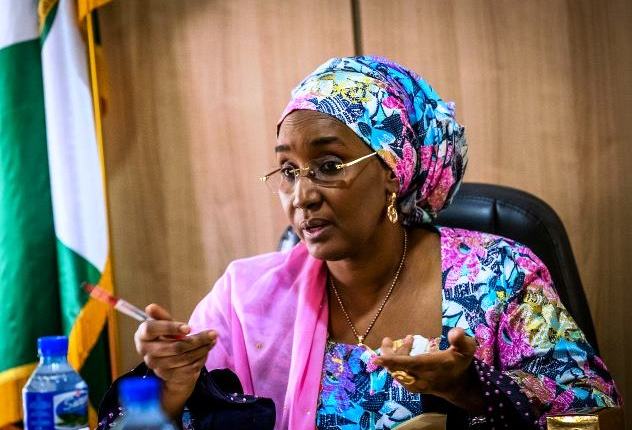The Minister of Humanitarian Affairs and Disaster Management, Sadiya Farouq has disclosed that those with more than N5000 bank credit in their accounts would be excluded from the support.
She disclosed this during a press briefing at the State House, Abuja on Wednesday. She said People Living with Disabilities (PLWDS) would be considered in the new tranche of palliatives to cushion the effects of lockdown on Nigerians.
She added that the government would also consider Nigerians who load credit units less than N100.
“Well, we have three options; one, we are going to use the National Social Register that we already have; two, we are also going to focus on the urban poor as I mentioned, by using their Verified Biometric Verification Number (BVN) accounts to get them, that is, people that have an account balance of N5,000 and below,” Farouq said.
“We are also using mobile networks to know people that top up the credit units for their phones with may be N100 or less. Those are also people that we consider to be poor and vulnerable. So, these are the three options that we are exploring and I am sure that by the time we get this data we will be able to give this intervention.”
The support is part of the palliatives introduced by the Federal Government to mitigate likely effects of the COVID-19 lockdown, particularly in Ogun, Lagos and the Federal Capital Territory (FCT).
It could be recalled that President Muhammadu Buhari during his nationwide broadcast on Monday, April 13 announced the inclusion of extra 1 million people into the social register.
He directed that the new beneficiaries should be considered in the Conditional Cash Transfer programme currently ongoing across the states.
The Minister emphasised that programme would focus more on the urban poor and largely people in the informal sector.
“These are people who depend on the informal sector to earn their livelihood, they are daily wage earners and these are the people that we are really going to focus more on as well as people living with disabilities,” she added.
Farouq said only 25 percent of the nation’s population would benefit from the programme stressing that it might be later extended to cover more beneficiaries.
“Let me also say that we have a standard; 25 per cent of the total population is what we will take out,” the Minister explained.
“It cannot go round but we are starting from somewhere. Around 25 per cent of let’s say the location of Lagos State for example is what is going to benefit from this intervention that we are doing. Going forward, we might expand it but this is what is obtainable for now.”
